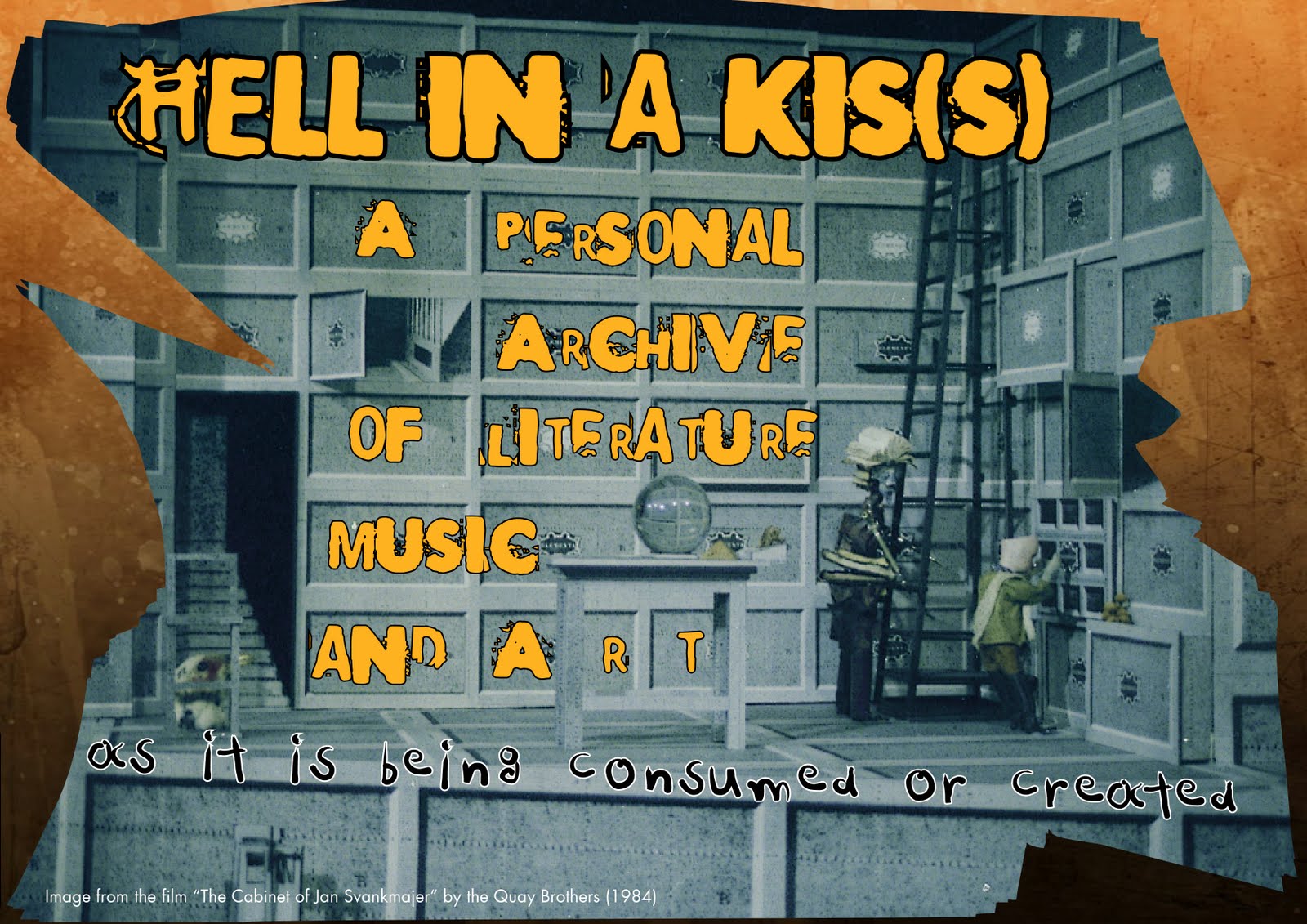
Wednesday, March 30, 2011
On seeing the last photograph of Oscar Wilde

Tuesday, March 29, 2011
The subversive humour of John Cage

Thursday, March 24, 2011
The Invention Of Love (2010)
Tuesday, March 1, 2011
Νίκος Παπατάκης (1918-2010) - Nico Papatakis

Στη γαλλική πρωτεύουσα, ο αεικίνητος Παπατάκης συναναστράφηκε με όλη την αφρόκρεμα της γαλλικής διανόησης, από τον Ζαν Πολ Σαρτρ ίσαμε τον ‘καταραμένο’ Ζαν Ζενέ, και τους ποιητές Αντρέ Μπρετόν, Ζακ Πρεβέρ και Ρομπέρ Ντενό. Με τον Ζαν Ζενέ βρέθηκαν μαζί στους "πέντε δρόμους". Μονίμως πεινασμένοι, κλέβανε και μετά, πολυ συχνά, τσακωνόντουσαν και για τα κλεψιμέικα. Ο Παπατάκης, αν και δεν ήταν ομοφυλόφυλος, είναι το αντικείμενο του πόθου του Ζενέ στο ποίημα "La Galère" που είναι και αφιερωμένο σε αυτόν.
Το 1947, ο Νίκος Παπατάκης ανοίγει το καμπαρέ «Το Κόκκινο Ρόδο» (La Rose Rouge), που απετέλεσε στέκι και συναυλιακό χώρο για πολλούς καλλιτέχνες της εποχής όπως η Juliette Greco, ο Miles Davis και ο Boris Vian μεταξύ άλλων. Το 1950 γίνεται παραγωγός και χρηματοδότης της ταινίας του Ζαν Ζενέ «Ένα ερωτικό τραγούδι», του οποίου τη φωτογραφία υπέγραψε ο Ζαν Κοκτώ. Η μοναδική αυτή, χωρίς διαλόγους ταινία 26 λεπτών του ‘άγιου’ (όπως τον απεκάλεσε ο Σαρτρ) συγγραφέα-εγκληματία λογοκρίθηκε και δεν προβλήθηκε στις κινηματογραφικές αίθουσες παρά μόνον το 1975. Η ταινία γυρίστηκε απο τον Ζενέ στο χώρο του εστιατορίου πάνω απο το Καμπαρέ του Παπατάκη.
Το 1954 παντρεύτηκε την Anouk Aimée και απόκτησε μία κόρη.
Το 1957 αηδιασμένος από τη στάση της Γαλλίας στη Αλγερία, εγκατέλειψε το Παρίσι για τη Νέα Υόρκη, όπου είχε δεσμό με το μανεκέν από τη Γερμανία Κρίστα Πέφγκεν, η οποία υιοθέτησε σαν καλλιτεχνικό ψευδώνυμο το μικρό του όνομα. Ως Nico, είχε μία αξιόλογη σόλο καριέρα στη μουσική ροκ σκηνή, ξεκινόντας ως ηθοποιός του Άντι Γουόρχολ στην ταινία του Chelsea Girls και μέλος των Βέλβετ Άντεργκράουντ. Την ίδια περίοδο, ο Παπατάκης, συνδέεται φιλικά με τον μεγάλο Αμερικάνο σκηνοθέτη John Cassavetes τον οποίο βοηθά με χρήματα να τελειώσει την ταινία σταθμό του κινηματογράφου, Shadows (1959).
Κατά την επιστροφή του στο Παρίσι, γύρισε το 1962 την πρώτη του ταινία «Οι Άβυσσοι» (Les Abysses), βασισμένη στο μυθιστόρημα του Ζενέ «Οι Δούλες» (Les Bonnes). Η ταινία προβλήθηκε την ίδια χρονιά στο Φεστιβάλ των Καννών και προκάλεσε σκάνδαλο.
Το 1967 γύρισε την ταινία «Οι βοσκοί». Η ταινία αυτή είναι μια εκπληκτική διαχρονική προσέγγιση και αλληγορία της ελληνικής πραγματικότητας . Η φαινομενικά απλή βουκολική ιστορία γίνεται αφορμή για να προβληθούν, γυμνές, οι έννοιες της επανάστασης, της ελευθερίας, της σχέσης των φύλων, της εξουσίας και πολλών άλλων καίριων θεμάτων μέσα από την ανάλυση των κοινωνικών δομών μιας Ελληνικής κοινότητας. Ας μην ξεχνάμε οτι η ταινία τελείωσε τη στιγμή ακριβώς που η Ελλάδα άρχισε να βυθίζεται στα σκοτάδια της δικτατορίας. Προβλήθηκε το 1968 σε ελάχιστους κινηματογράφους (ως ντοκυμαντέρ) χωρίς καμμία εμπορική επιτυχία και μετέπειτα φυγαδεύτηκε στο εξωτερικό.
To 2009, στο πλαίσιο μιας προβολής της ταινίας του "Les Abysses" σε ένα κινηματογράφο στο Παρίσι και της συζήτησης που ακολούθησε, ο Νίκος Παπατάκης αναφέρθηκε και σε ένα απραγματοποίητο ακόμα σενάριο ταινίας που είχε αρχισει να δουλεύει. Το σενάριο αυτό θα ήταν βασισμένο σε μια ιδέα του Μαρξ που είπε ότι το έγκλημα είναι παραγωγικό. Παράγει τον δικηγόρο, τους δικαστές, τα όπλα, τον πόλεμο, κ.ο.κ. Ο Παπατάκης λοπόν φαντάστηκε μια κοινωνία στην οποία δεν υπάρχει έγκλημα γιατί στην εξουσία βρίσκεται ένας δικτάτορας που έχει απαγορέψει ακόμα και να μιλάει κανείς για κάτι τέτοιο. Η κοινωνία τότε σταδιακά χάνεται μεσα στη πλήξη. Το έγkλημα λοιπόν αποτελει απαραίτητο στοιχείο για την επιβίωση της κοινωνίας.






